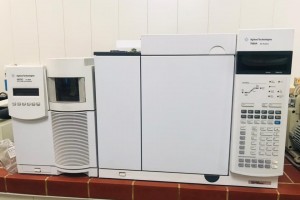
The College of Education for Pure Sciences, Department of Life Sciences, discussed a master’s thesis on the preparation of some egg antigens, Gal d I and Gal d III.
Determine their antigenic susceptibility
The message submitted by the researcher (Doaa Abdullah Nimah) included:
Food allergy is a major health problem in the world, and egg allergy is currently one of the most common health problems in all parts of the world. The spread of egg allergy has increased recently, and there is no accurate diagnostic study of the causes of egg allergy at this time, so the study aims to detect antibodies. Type E tests against the egg white antigens Ovalbumin, Ovomucoid, and Ovotransferrin in the serum of people with food allergies to determine which antigens have the greatest potential to cause an allergic reaction.
The goal of the message
Given the importance of food allergy and its impact on human health, the study aimed to determine the antigenic susceptibility of some egg antigens by detecting specialized type E antibodies against the egg antigens Gal d I, Gal d II, and Gal d III in the serum of people suffering from allergies. Quantitative measurement of the concentration of type E antibodies in the serum of people suffering from allergies.
Measuring the concentration of interleukins 4, 9, and 13 and determining their relationship with food allergy to egg antigens. And evaluating the role of which antigens are most closely related to food allergy to egg antigens.
I concluded the message
Ovotransferrin antigen is one of the most common proteins causing allergies caused by egg whites. There is a positive relationship between T. IgE and food allergies. The treatment led to a significant decrease in IL-13 concentrations compared to other interleukins in the study. IL-9 is the highest immune indicator in patients allergic to egg white antigens. There is a positive relationship between T. IgE and cases positive for egg white antigens.
The letter recommended conducting more in vivo studies to measure the effect of egg white antigens on immune parameters, and conducting more immunological and molecular studies of the Ovotransferrin antigen, which can be used as immunotherapy.









